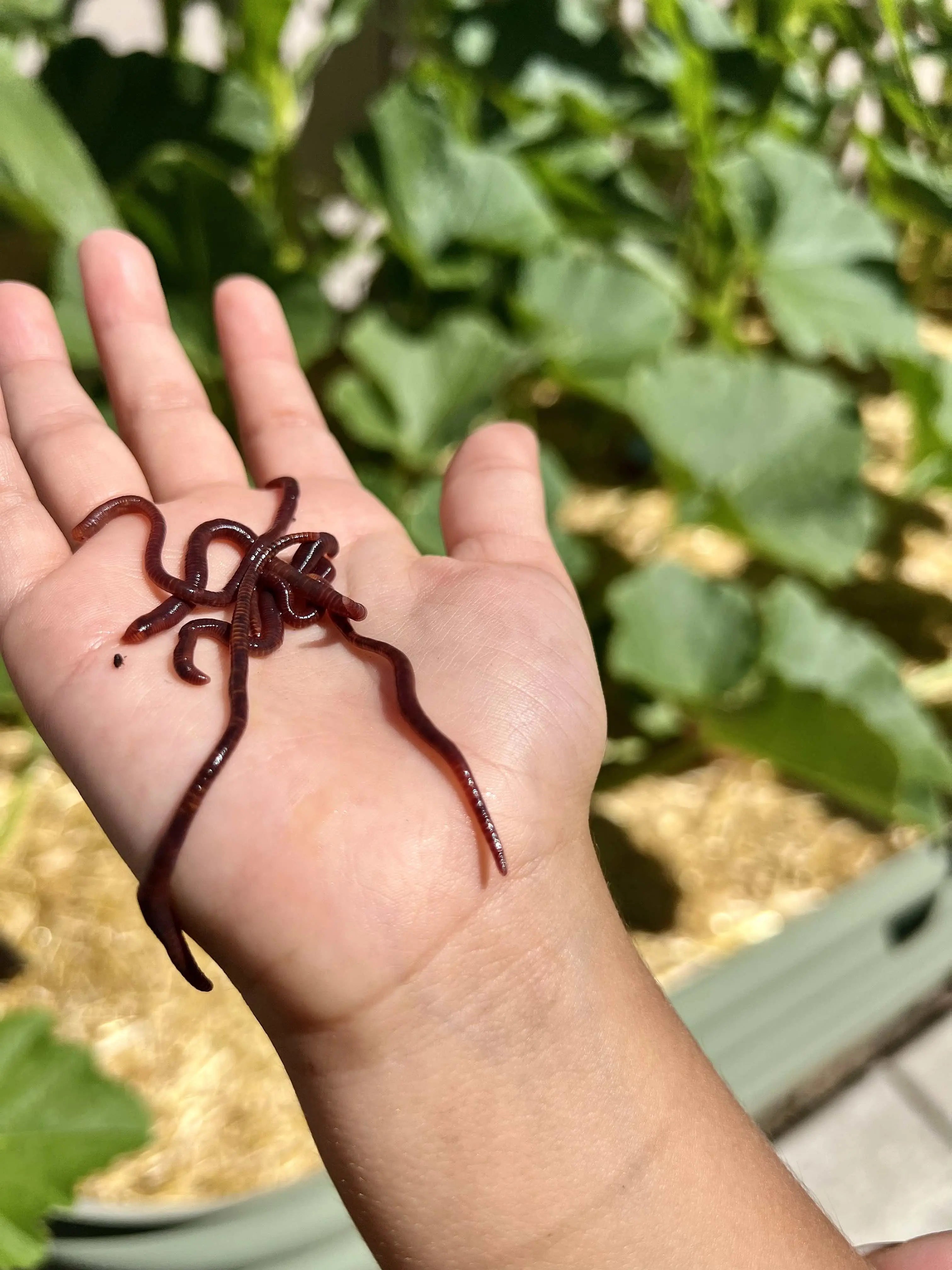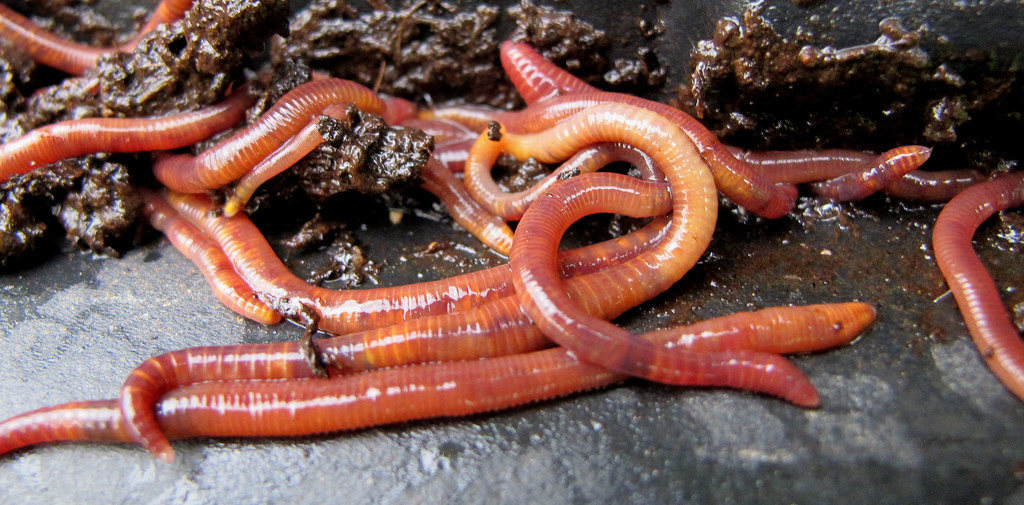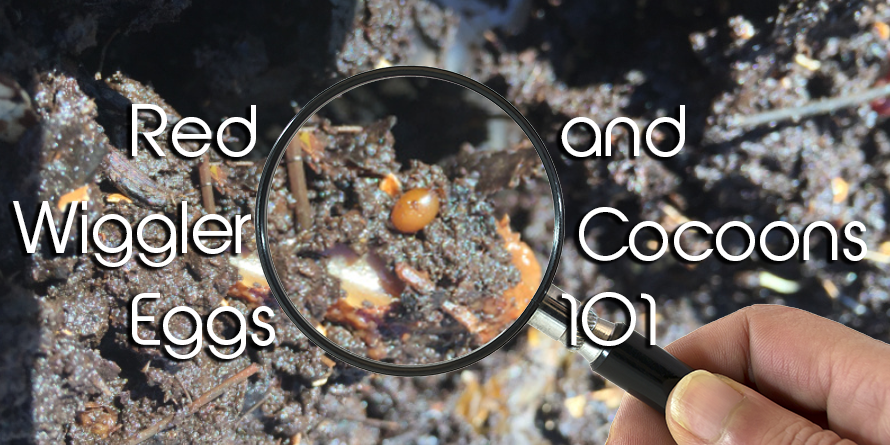Get the Best Worms for Your Fishing with Red Wiggler Express
Get the Best Worms for Your Fishing with Red Wiggler Express
Blog Article
Unlock the Secrets of Red Wigglers: Your Overview to Composting Success
The assimilation of red wigglers right into composting techniques presents a considerable opportunity for improving soil health and advertising sustainability. Recognizing their requirements and actions is crucial for maximizing their capacity, from establishing up an appropriate worm bin to feeding them the right materials.

What Are Red Wigglers?
(Red Wiggler Express)Red wigglers, clinically referred to as Eisenia fetida, are a varieties of earthworm mainly utilized in composting because of their impressive capability to decay raw material efficiently. These worms are identified by their reddish-brown pigmentation and a fractional body, normally determining between 3 to 4 inches in size. Unlike various other earthworm species, red wigglers thrive in rich, natural atmospheres, making them ideal for vermicomposting systems.
Native to North America, they are commonly discovered in rotting fallen leaves and compost heap, where they play an essential duty in nutrient recycling. Their adjustment to staying in a damp, cardiovascular setting enables them to eat large quantities of organic waste, simplifying right into nutrient-rich castings that enhance soil wellness.
Red wigglers reproduce quickly, with a single worm with the ability of generating numerous cocoons every week, each containing numerous hatchlings. This quick reproduction rate contributes to their efficiency in composting operations. They prefer temperatures in between 60 ° F and 80 ° F, and their task degree increases considerably within this array, additional assisting in the decay process. Comprehending the biology and habits of red wigglers is essential for maximizing their capacity in composting applications.
Advantages of Utilizing Red Wigglers
Utilizing the power of red wigglers in composting supplies countless benefits that enhance soil health and advertise sustainable waste administration. These exceptional microorganisms effectively break down organic issue, changing kitchen area scraps and yard waste into nutrient-rich vermicompost. This completed item is exceptionally useful for plant development, as it enhances soil structure, raises moisture retention, and boosts nutrient availability.

(Red Wiggler Express)Furthermore, the presence of red wigglers in your composting system can increase the composting procedure, generating high-quality garden compost in a fraction of the time compared to conventional approaches. The castings produced by these worms are additionally bristling with useful microbes that better enhance the soil ecosystem.
Establishing Up Your Worm Container
Creating a reliable worm container is a simple process that can substantially enhance your composting initiatives. The primary step is choosing an ideal container. Worm bins can be made from plastic storage containers, wood boxes, or commercially available worm containers. Ensure the container has ample water drainage and ventilation openings to maintain optimum wetness levels and air flow.
Next, prepare the bedding material, which offers as the worms' habitat. A mix of shredded paper, cardboard, and coconut coir works well, offering a comfortable environment for the worms.

Feeding Your Red Wigglers
To make sure the health and wellness and efficiency of your red wigglers, it is important to supply them with a well balanced diet that satisfies their nutritional demands. Red wigglers thrive on a varied variety of natural products, which not only provide required nutrients but also promote efficient composting.
Beginning by integrating kitchen area scraps such as vegetable peels, fruit cores, and coffee premises. Stay clear of citrus fruits, onions, and garlic, as these can be detrimental to worm wellness. Furthermore, present shredded paper, cardboard, and completely dry fallen leaves to helpful hints create a well-aerated atmosphere.
Feeding frequency need to be checked; typically, worms can consume half their body weight in food weekly. It is important to prevent overfeeding, as excess food can result in unpleasant smells and attract bugs. A great practice is to include food in tiny quantities, permitting worms to refine it prior to presenting extra.
Preserving dampness degrees is additionally essential; the bed linen ought to perspire however not soaked. Be sure to frequently check the temperature level and pH degrees of the container to make sure an ideal setting for your red wigglers, ultimately improving their composting efficiency.
Harvesting and Using Garden Compost
An effective composting procedure with red wigglers culminates in the abundant, dark compost referred to as vermicompost, which can substantially boost dirt health and plant development. Gathering this nutrient-dense product usually happens every three to six months, depending upon the size of your system and the quantity of raw material being refined.
To collect, carefully different the garden compost from the worms and any undecomposed materials. One effective approach includes moving the contents of the bin away and adding fresh bedding and food to the vacant area, urging the worms to move. After a couple of days, the compost can be accumulated from the opposite side.
It is important to use vermicompost appropriately to maximize its benefits. By including vermicompost into your gardening regimen, you not just recycle natural waste yet likewise produce a thriving community that supports lasting horticulture methods.
Conclusion
In recap, red wigglers act as extraordinary allies in composting initiatives, transforming organic waste right into nutrient-rich vermicompost (Red Wiggler Express). Their distinct organic features and reliable waste processing abilities add substantially to lasting gardening methods. By recognizing the optimal problems for their habitat, feeding needs, and compost harvesting strategies, gardeners can enhance dirt wellness and advertise plant vitality. Embracing vermicomposting not just decreases landfill waste but additionally cultivates a more ecologically responsible method to gardening and resource monitoring.
Report this page